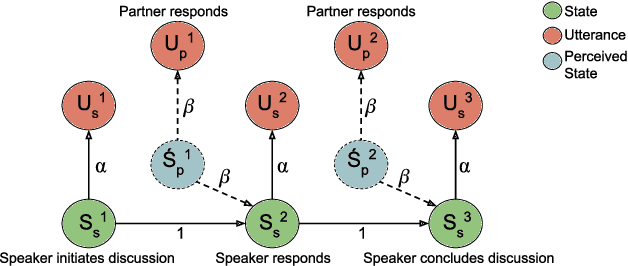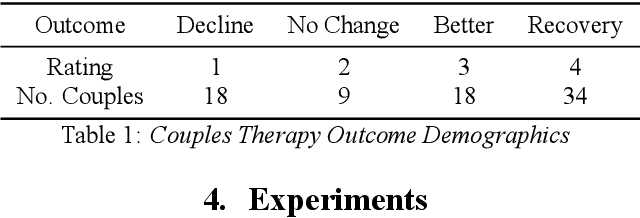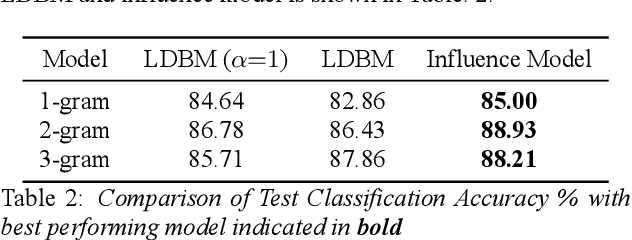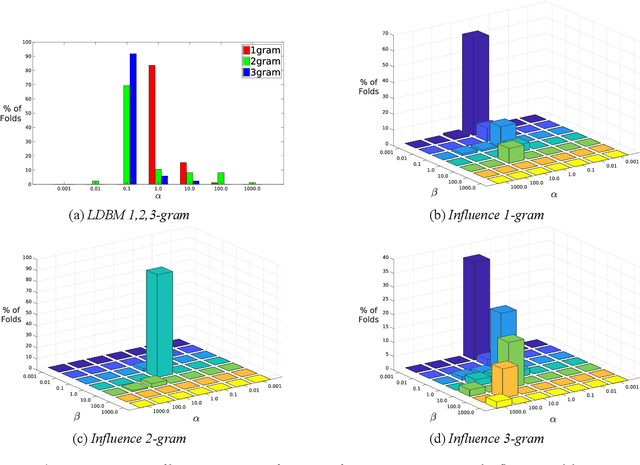Modeling Interpersonal Influence of Verbal Behavior in Couples Therapy Dyadic Interactions
Paper and Code
May 23, 2018



Dyadic interactions among humans are marked by speakers continuously influencing and reacting to each other in terms of responses and behaviors, among others. Understanding how interpersonal dynamics affect behavior is important for successful treatment in psychotherapy domains. Traditional schemes that automatically identify behavior for this purpose have often looked at only the target speaker. In this work, we propose a Markov model of how a target speaker's behavior is influenced by their own past behavior as well as their perception of their partner's behavior, based on lexical features. Apart from incorporating additional potentially useful information, our model can also control the degree to which the partner affects the target speaker. We evaluate our proposed model on the task of classifying Negative behavior in Couples Therapy and show that it is more accurate than the single-speaker model. Furthermore, we investigate the degree to which the optimal influence relates to how well a couple does on the long-term, via relating to relationship outcomes
 Add to Chrome
Add to Chrome Add to Firefox
Add to Firefox Add to Edge
Add to Edge